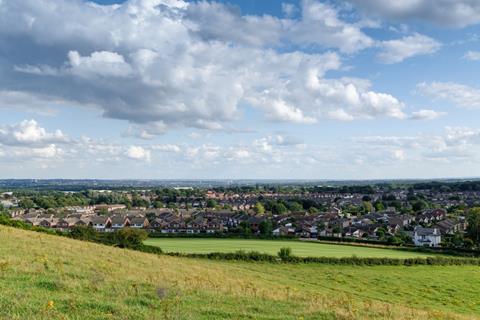Almost all (96%) Londoners surveyed believe housing is a crucial issue at the next election
Two in three young Londoners support building on the green built, according to a poll commissioend by developer Pocket Living.
The research showed 66% of Londoners aged 25 to 45 years agree withe the idea of development on the green belt if it leads to more affordable housing. More than a quarter (27%) strongly agree.

The research notes that in London, green belt-designated land currently constitutes 22% of the total land area, marking the highest percentage in comparison to any region in England.
During the Labour Party Conference earlier this month, Keir Starmer said that Labour would allow development on low-quality green belt land, referred to as “grey belt”, such as scrubland and car parks.
See also >> Barratt wins 300-home appeal on disputed green belt site
See also >> MPs call for ‘grown-up conversation’ about the green belt
Over three-quarters (78%) of those surveyed said they felt that the current government isn’t doing enough for affordable homes in London.
The report found that 67% of young people in London would vote for a candidate at the next election promoting more housing delivery regardless of their political stance.
This figure increased to 73% of those aged between 25-29, indicating that the younger the demographic, the more housing will shape their key political decisions over the next 12 months.
Marc Vlessing, chief executive officer at Pocket Living, said: “London is at breaking point and this year’s research should act as a wake-up call for policymakers and politicians.
“Our findings suggest that a staggering two in three non-homeowning Londoners believe they will never own their own home and without urgent intervention to enhance housing solutions, the capital could see many hard-working city makers, essential to our growing economy, pack their bags and leave.”
Pocket Living collected around 1,000 responses online between 9 and 24 August 2023.
The results were weighted by age, gender and borough to ensure the data is representative of 25–45-year-olds living in London, based on the latest census data.











1 Readers' comment